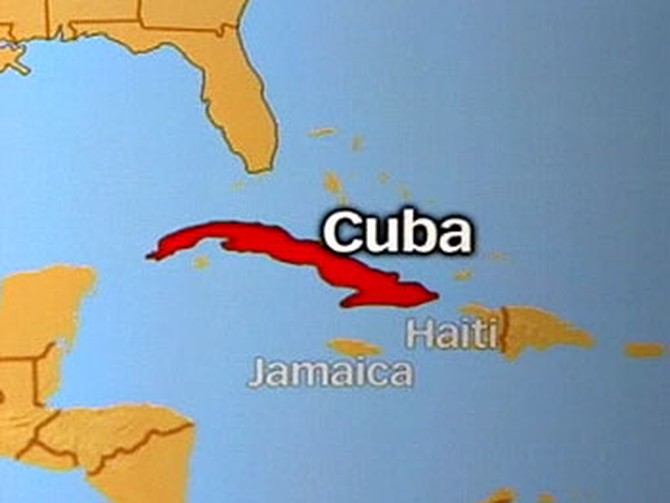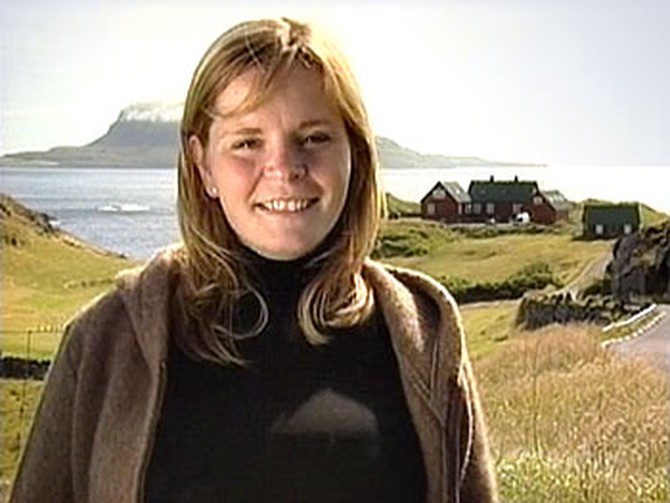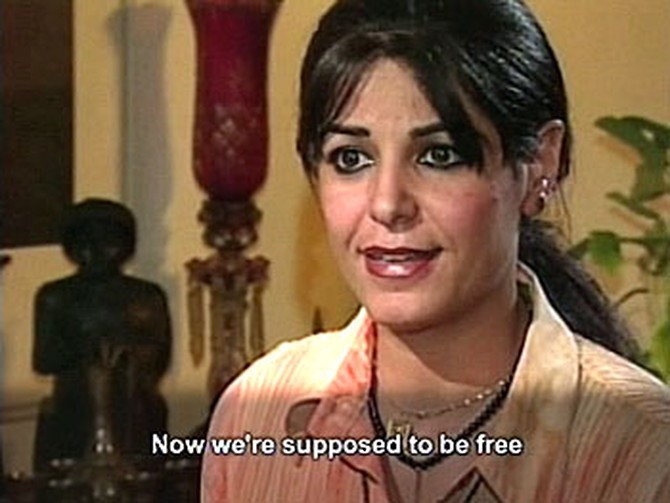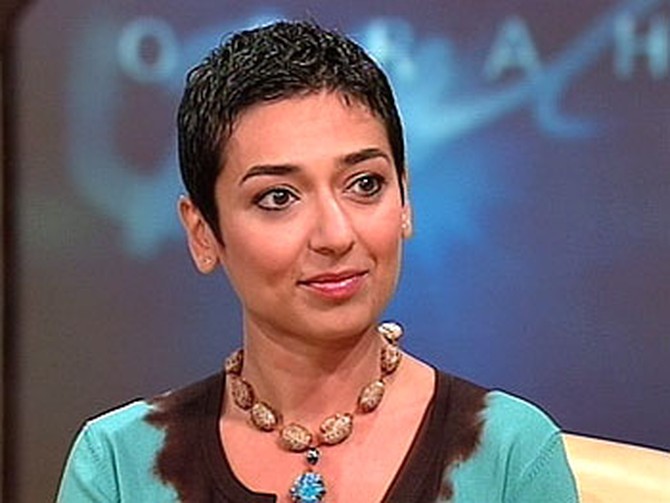Women at 30

Thirty-year-old Zain Al Sabah was born into Middle Eastern royalty—her great uncle is the Emir, the current ruler, of Kuwait. And Zain created a stir when she announced she wanted to marry a commoner instead of following the old Kuwaiti tradition of marrying your cousin to preserve the family name and wealth. Now Zain lives in a stunning home with her husband's parents, which is common for young married couples here, but she is building her own home, complete with a pool, gym, tennis court and theater.
In this tiny, oil-rich country, wealth is not reserved just for royals. Zain explains Kuwaiti citizens get free education through college, free medical care and they don't pay taxes! When a Kuwaiti couple gets married, the Emir gives them a $12,000 wedding gift! Most native Kuwaitis also enjoy extravagant lifestyles—mansions, servants and lots of shopping. For example, Zain says her friends fly to Paris and Milan just to buy their wedding dresses. "You don't have to worry about your college education, so why not spend that money on your daughter's wedding gown?"
There are freedoms that Kuwaiti women do not enjoy. Though it's considered one of a few democracies in the Middle East, women do not have the right to vote. "There's nothing I can tell you right now that can justify that," Zain says. "It's a basic, civil, human right. We're considered to be a democratic country. Obviously that democracy is kind of lopsided. I don't mind at all taking it one step at a time. Because, you know what? When the women come on the scene, it's going to be amazing."
In this tiny, oil-rich country, wealth is not reserved just for royals. Zain explains Kuwaiti citizens get free education through college, free medical care and they don't pay taxes! When a Kuwaiti couple gets married, the Emir gives them a $12,000 wedding gift! Most native Kuwaitis also enjoy extravagant lifestyles—mansions, servants and lots of shopping. For example, Zain says her friends fly to Paris and Milan just to buy their wedding dresses. "You don't have to worry about your college education, so why not spend that money on your daughter's wedding gown?"
There are freedoms that Kuwaiti women do not enjoy. Though it's considered one of a few democracies in the Middle East, women do not have the right to vote. "There's nothing I can tell you right now that can justify that," Zain says. "It's a basic, civil, human right. We're considered to be a democratic country. Obviously that democracy is kind of lopsided. I don't mind at all taking it one step at a time. Because, you know what? When the women come on the scene, it's going to be amazing."

CNN's Jill Dougherty reports that in Russia today, many 30-year-old women are on the fast track to becoming the new rich! After the fall of the Communist Soviet Union in 1991, women standing in breadlines and struggling to survive on an average monthly income of less than $6 became a thing of the past. Moscow has become the billionaire capital of the world!
Even with Russia's rapidly growing economy, many Russian women still marry by age 24 and start their families before age 30. However, Russia has one of the highest divorce rates in the world: 65 percent of marriages fail.
Even with Russia's rapidly growing economy, many Russian women still marry by age 24 and start their families before age 30. However, Russia has one of the highest divorce rates in the world: 65 percent of marriages fail.

If you're a 30-year-old woman in France, you are probably not overweight: 21% of French women are overweight compared to a whopping 62% of American women.
However, as a 30-year-old woman in France, you have a one-out-of-three chance of being a smoker and you probably drink around 17 gallons of wine a year. The average 30-year-old French woman makes about $27,000 and she enjoys lots of vacation time because the government enforces a 35-hour workweek, with five weeks of paid vacation every year. C'est magnifique!
However, as a 30-year-old woman in France, you have a one-out-of-three chance of being a smoker and you probably drink around 17 gallons of wine a year. The average 30-year-old French woman makes about $27,000 and she enjoys lots of vacation time because the government enforces a 35-hour workweek, with five weeks of paid vacation every year. C'est magnifique!

If you're a 30-year-old woman in Brazil, you are probably driven to have a successful career. After Brazil became a democracy 16 years ago, many women here were inspired to step out of their homes and into the workforce. But 33-year-old Luciana says being a Brazilian beauty is still a top priority. "For most of the women here, having a nice body is more important than being married at 30," says Luciana. "Since we were like little girls, we grew up with the idea that you must have a nice body, because the guys always look at your body first. Bikini fashion in Brazil is a big business, as everybody knows. It seems like our sizes are not as small as they used to be, but they're still much smaller than American sizes. That's why we need to get waxed to go to the beach. Usually we'll spend about $10–20 to get everything done. Feels better. Looks better. And is definitely sexually better."
Brazil is also known as a mecca for plastic surgery because of the number of operations performed…largely on American women! Lisa Ling says, "I've traveled throughout South America—Columbia, Venezuela, Brazil—and I'm always shocked by how many American women I encounter there because [plastic surgery] is less expensive…and you can vacation in Rio while you're recovering." They also do more bottom implants there than anywhere else in the world!
Brazil is also known as a mecca for plastic surgery because of the number of operations performed…largely on American women! Lisa Ling says, "I've traveled throughout South America—Columbia, Venezuela, Brazil—and I'm always shocked by how many American women I encounter there because [plastic surgery] is less expensive…and you can vacation in Rio while you're recovering." They also do more bottom implants there than anywhere else in the world!

Chances are that if you're a 30-year-old woman in Cuba, you've already been divorced three times: 70 percent of marriages fail. As long as both partners agree, a couple can get divorced in five minutes before a notary public for only $3.50. Most couples live in cramped, crowded apartments with relatives and no privacy or intimacy, which contributes to the divorce rate here.
"Life in Communist Cuba can be a struggle, even if you are at the top of your profession," reports CNN's Lucia Newman. "A doctor, a dancer or a waiter all earn about the same, roughly $23 dollars a month. Ninety-nine percent of Cubans don't even own a car. Although salaries are low, the state provides for all health care and education through college, plus some basic food rations. Abortions are free, too. By the time a woman is in her 30s, she's had an average of four abortions."
"Life in Communist Cuba can be a struggle, even if you are at the top of your profession," reports CNN's Lucia Newman. "A doctor, a dancer or a waiter all earn about the same, roughly $23 dollars a month. Ninety-nine percent of Cubans don't even own a car. Although salaries are low, the state provides for all health care and education through college, plus some basic food rations. Abortions are free, too. By the time a woman is in her 30s, she's had an average of four abortions."

Thirty-year-old actress and singer Patricia Manterola was recently named one of People en Español magazine's most beautiful Latin women. She's also the star of one of Mexico's hottest prime time television shows. Patricia says women in Mexico don't exercise! "Because men here, they like curves. … Mexican women, we like to dress sexy. We love to wear tight clothes that show our bodies."
Traveling between Mexico, the U.S. and Spain, Patricia admits she has started working out like an American, but she's amazed how much Americans work. "Here in America you have to work all day long. [In Mexico,] we're still siesta-ing. And, the same as in Kuwait , we take a two-hour lunch break." And Patricia says Americans drink tequila "all wrong." "[In the U.S.,] you do shots and the whole point is to get wasted, and that's not the thing, you know? You're supposed to sip it like a cognac." Patricia knows how much Oprah loved tequila at her 50th birthday bash, so she brought Oprah a very rare tequila called Ago Varrail.
Also, did you know that in Mexico there are really high rates of infidelity—for married men and women? Patricia says, "If you're a woman getting a divorce on the grounds of adultery, your husband might not be held responsible if he says you didn't meet his conjugal rights. If a woman is held responsible for 'pushing' him to adultery, she loses the right to receive alimony forever. Infidelity is a cultural thing."
Traveling between Mexico, the U.S. and Spain, Patricia admits she has started working out like an American, but she's amazed how much Americans work. "Here in America you have to work all day long. [In Mexico,] we're still siesta-ing. And, the same as in Kuwait , we take a two-hour lunch break." And Patricia says Americans drink tequila "all wrong." "[In the U.S.,] you do shots and the whole point is to get wasted, and that's not the thing, you know? You're supposed to sip it like a cognac." Patricia knows how much Oprah loved tequila at her 50th birthday bash, so she brought Oprah a very rare tequila called Ago Varrail.
Also, did you know that in Mexico there are really high rates of infidelity—for married men and women? Patricia says, "If you're a woman getting a divorce on the grounds of adultery, your husband might not be held responsible if he says you didn't meet his conjugal rights. If a woman is held responsible for 'pushing' him to adultery, she loses the right to receive alimony forever. Infidelity is a cultural thing."

Here's a set of islands you've probably never heard of before: the Faroe Islands. There are no natural trees growing in the Faroe Islands and the islands are so small you're never more than three miles from the coastline. There are about 50,000 people living in the entire islands. Alene from the Faroe Islands says, "I think that's about the equivalent of Sheboygan, Wisconsin!

As a 30-year-old woman in Kuala Lumpur, Malaysia, Paula pays about $250 U.S. to rent her three-bedroom, two-bathroom apartment. "I've also got a beautiful swimming pool," she says. "We've got tennis courts here. An average 30-year-old woman in Malaysia will earn something like $1,500–$2,000 U.S. a month. So, as you can see, every month we have plenty of change left over to buy that pair of must-have Jimmy Choos…did you know that Jimmy Choo is actually from Malaysia?"
Bi-weekly massages are a way of life for Paula. A one-hour massage here will cost her between $7–$10 U.S. And Paula says many Malaysian women don't pluck or wax to remove hair—they use a procedure known as threading. "I don't know how [the threaders] do it. They get really precise. It's painless and it only costs five ringgit. That would be about $1.15 in America."
Bi-weekly massages are a way of life for Paula. A one-hour massage here will cost her between $7–$10 U.S. And Paula says many Malaysian women don't pluck or wax to remove hair—they use a procedure known as threading. "I don't know how [the threaders] do it. They get really precise. It's painless and it only costs five ringgit. That would be about $1.15 in America."

Keeping up with fashion trends in London can be a very costly business. For example, if you wanted to get yourself the latest pair of Earl or Seven jeans, they'll set you back almost $250.
What you may not know about living in London is that it's a real challenge to find a mate. For every single man, there are at least four women chasing after him!
What you may not know about living in London is that it's a real challenge to find a mate. For every single man, there are at least four women chasing after him!

Rwanda, a beautiful central African country, was once considered hell on earth. Just 10 years ago, nearly 1 million people were slaughtered in a brutal massacre that lasted 100 days. Henriette never imagined she'd live to be 30 years old. Her family was Tutsi, the minority ethnic group targeted for elimination by the country's ruthless Hutu militia. She says she watched them murder her family—16 members in all. When it was her turn, Henriette says she was raped repeatedly until they were too exhausted to kill her. While they rested, she escaped. Today, Henriette is a tour guide in the country's largest memorial to this brutal genocide. Henriette's personal reminder of the rapes is her 10-year-old child she raises with three adopted orphans of the genocide. She has very few friends in their 30s, because most of the Tutsi women her age were killed during the massacres.
"I'm not like I was before," she says. "Seven years ago, I had no hope. No joy. But on this day, I'm very happy. I feel I'm okay. I'm like other people."
Henriette's dream has been to go to college—Oprah's Angel Network is going to send her there!
"I'm not like I was before," she says. "Seven years ago, I had no hope. No joy. But on this day, I'm very happy. I feel I'm okay. I'm like other people."
Henriette's dream has been to go to college—Oprah's Angel Network is going to send her there!

What is it like being a 30-year-old living in a war zone? Sabah, a writer living in Baghdad, has lived through three wars and the death of her father and brother under Saddam Hussein's regime. She says the situation for women in Iraq has never been worse than it is now.
"I mean, welcome to the real world," she says. "For me, as an Iraqi woman, I don't feel safe. Anyone can attack me. Anyone can rape me. Anyone can even kill me, you know? We are full of fear. Iraqi women are losing their freedom instead of gaining freedom, because there is a lack of security. Now we're supposed to be free. But now we are more afraid."
Most Iraqi people are living in misery, and Sabah says when her life became unbearable, she turned to Valium for escape. In Iraq, Valium is sold without a prescription and costs only 20 cents a bottle. Sabah says the constant state of fear is driving more and more women to the highly addictive drug.
"I mean, welcome to the real world," she says. "For me, as an Iraqi woman, I don't feel safe. Anyone can attack me. Anyone can rape me. Anyone can even kill me, you know? We are full of fear. Iraqi women are losing their freedom instead of gaining freedom, because there is a lack of security. Now we're supposed to be free. But now we are more afraid."
Most Iraqi people are living in misery, and Sabah says when her life became unbearable, she turned to Valium for escape. In Iraq, Valium is sold without a prescription and costs only 20 cents a bottle. Sabah says the constant state of fear is driving more and more women to the highly addictive drug.

Zainab Salbi is an Iraqi-American and founder of Women for Women International, an organization that helps women around the world who have survived the atrocities of war. She says Iraq is in complete disarray and, for women especially, unbelievably dangerous.
"The first month after the war, the first sector that got targeted was women," Zainab says. "The rape and the kidnapping of [Iraqi] women happened in June and July [2003.]" Zainab explains since the liberation of Iraq, law and order have collapsed, leaving many women terrified to leave their homes and literally in the dark. "There's chaos. There's anarchy. There's no police force. There's no system anymore. The electricity is on two hours a day, off four hours and it's 120 degrees in the summer. So the electricity situation, which we have to notice, has economic impact. A lot of women who are running businesses in their homes are no longer able to do that. It has a security impact, because, especially in the winter, you know, it's darkness. An education impact, because in school, the kids are no longer able to do their homework. And it's basically taking a toll on everyone's life."
"The first month after the war, the first sector that got targeted was women," Zainab says. "The rape and the kidnapping of [Iraqi] women happened in June and July [2003.]" Zainab explains since the liberation of Iraq, law and order have collapsed, leaving many women terrified to leave their homes and literally in the dark. "There's chaos. There's anarchy. There's no police force. There's no system anymore. The electricity is on two hours a day, off four hours and it's 120 degrees in the summer. So the electricity situation, which we have to notice, has economic impact. A lot of women who are running businesses in their homes are no longer able to do that. It has a security impact, because, especially in the winter, you know, it's darkness. An education impact, because in school, the kids are no longer able to do their homework. And it's basically taking a toll on everyone's life."
Published 10/06/2004

